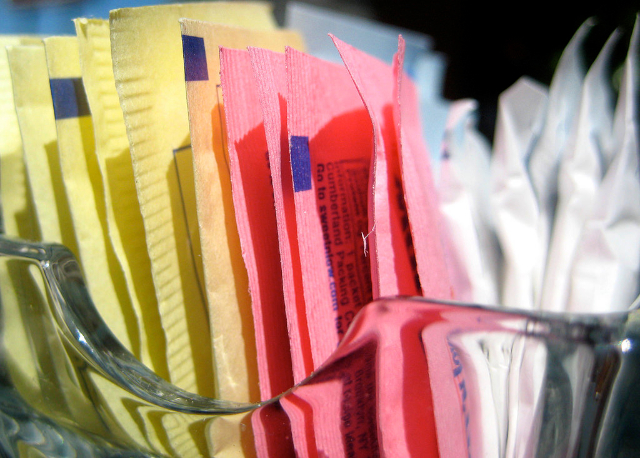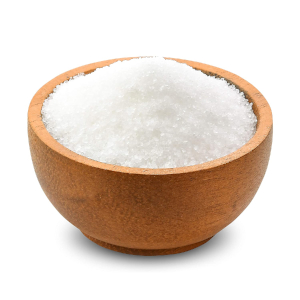A new study report in the current edition of Nature Magazine suggests erythritol is linked to thrombosis. And that’s bad news for processors and consumers of a wide range of low-cal foods… What names do you know this notoriously shy product under?
 Where you’re most likely to know erythritol from…
Where you’re most likely to know erythritol from…
What it is
The widely used artificial sweetener is sold under a number of popular brand names, often in blends with other compounds, as a sugar replacement at restaurants, office coffee stations and at retail, under brand names such as Sweet ‘n Low, Equal, Truvia and Splenda. It is also sold in ‘health food’ and supplement stores under almost 180 different names.
But its biggest role is in highly- and ultra-processed foods, principally beverages. It’s been promoted as a safe and good-tasting sweetener and treads lightly on your palate – only about half as sweet as regular table sugar. It’s commonly used to bulk-up other sweeteners that are stronger-tasting and more concentrated than sugar.
One way or another, you’re probably going to have to read the label to see whether any low- or no-sugar product you’re considering buying contains erythritol.
Why it’s dangerous
The stuff sounds like a God-send for the food processing industry, but there are drawbacks. One newly-revealed one is, it appears to be increase the risk thrombosis. Thrombosis is a direct precursor of strokes and heart attacks. That’s simply the clotting of the blood. When blood clots too quickly, it can break up allowing fragments to circulate in the bloodstream. The fragments will eventually lodge in smaller blood vessels, cutting off the blood supply to downstream tissues – which more often than not are heart muscles.
The foregoing is courtesy of a new study led by Dr. Stanley Hazen at the the Cleveland Clinic Lerner Research Institute. He warns erythritol poses a clear and present danger to your health and well being: “The degree of risk [is] not modest.” Especially for folks with pre-determined risk factors for heart and stroke.
Hazen explains that his team found, “If your blood level of erythritol was in the top 25 percent compared to the bottom 2 percent, there was about a two-fold higher risk for heart attack and stroke. It’s on par with the strongest of cardiac risk factors, like diabetes.”
On the other hand…
The Calorie Control Council, an industry association, told CNN that, “the results of this study are contrary to decades of scientific research showing reduced-calorie sweeteners like erythritol are safe, as evidenced by global regulatory permissions for their use in foods and beverages,” the council’s executive director, Robert Rankin stated in an email.
Say what? That sounds to me like they’re simply saying erythritol is safe because nobody (until now) has said it’s not.
Erythritol is currently considered ‘mostly harmless’ by the mighty U.S. Food and Drug Administration (FDA). In fact, the stuff has received the coveted GRAS (Generally Recognized as Safe) rating. As such, it’s considered safe for consumer purposes, has no official ‘dosage’ or ‘daily maximum allowance’ recommendations.
But Hazen says his team’s research suggests the regulators should take another look at erythritol. As often as not in early stage studies, Hazen cautions that more research is needed. I’m with him…
~ Maggie J.

